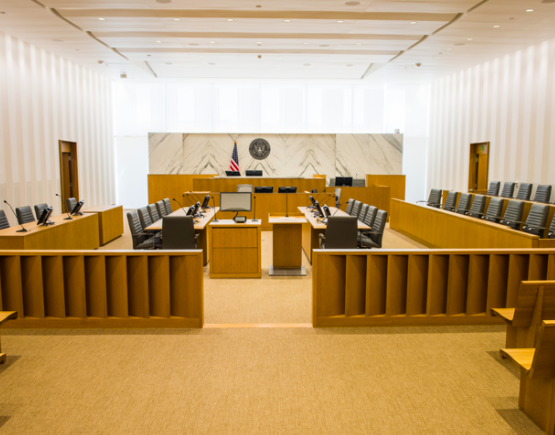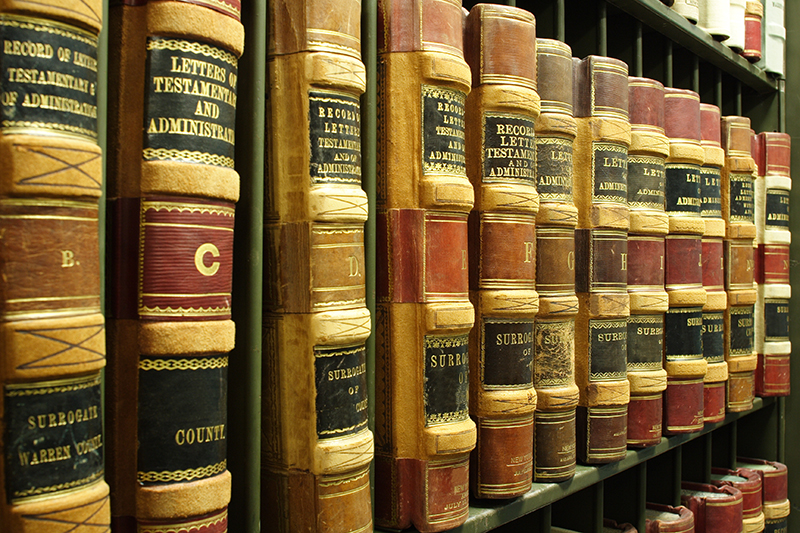
Central District of California in Los Angeles courtroom. (Photo: uscourts.gov)
California Statutes Codifying Court Decisions
Codifications are helpful because they make clear how the Legislature intends for the courts to interpret the code sections
By Chris Micheli, January 20, 2022 6:17 pm
On occasion, the California Legislature codifies in statute reported appellate court decisions. These codifications are helpful because they make clear how the Legislature intends for the courts to interpret the code sections that rely upon the court decision.
The following are some examples of statutes codifying court decisions.
Civil Code Section 2079.12 dealing with the duty to prospective purchasers of real property: The Legislature hereby finds and declares that the imprecision of terms in the opinion rendered in Easton v. Strassburger, 152 Cal. App. 3d 90, and the absence of a comprehensive declaration of duties, standards, and exceptions, has caused insurers to modify professional liability coverage of real estate licensees and has caused confusion among real estate licensees as to the manner of performing the duty ascribed to them by the court. The Legislature finds and declares that Sections 2079 to 2079.6, inclusive, of this article should be construed as a definition of the duty of care found to exist by the holding of Easton v. Strassburger, 152 Cal. App. 3d 90, and the manner of its discharge, and is declarative of the common law regarding this duty. However, nothing in this section is intended to affect the court’s ability to interpret Sections 2079 to 2079.6, inclusive. It is the intent of the Legislature to codify and make precise the holding of Easton v. Strassburger, 152 Cal. App. 3d 90. It is not the intent of the Legislature to modify or restrict existing duties owed by real estate licensees.
Code of Civil Procedure Section 830 dealing with actions relating to groundwater rights: This chapter shall be applied and interpreted consistently with all of the following: Providing for the conduct of a comprehensive adjudication consistent with Winters v. United States (1908) 207 U.S. 564.
Education Code Section 47612.7 dealing with charter school operations: If a charter school is required to submit a petition to a school district or county board of education in which a resource center is located in order to comply with the court decision in Anderson Union High School District v. Shasta Secondary Home School (2016) 4 Cal.App.5th 262, or other relevant court ruling, and the petition is necessary to retain current program offerings or enrollment.
Education Code Section 52163 dealing with the Bilingual-Bicultural Education Act of 1976: This program shall be offered in a manner consistent with the United States Supreme Court decision in Lau v. Nichols (414 U.S. 563), the Equal Education Opportunities Act of 1974 (20 U.S.C. Sec. 1701 et seq.) and federal regulations promulgated pursuant to those court decisions and federal statutes. In addition, instruction shall be offered in a manner consistent with the United States Supreme Court decision in Lau v. Nichols (414 U.S. 563), the Equal Educational Opportunities Act of 1974 (20 U.S.C. Sec. 1701 et seq.), and federal regulations promulgated pursuant to those court decisions and federal statutes.
Family Code Section 3049 dealing with matters to be considered in granting custody: It is the intent of the Legislature in enacting this section to codify the decision of the California Supreme Court in In re Marriage of Carney (1979) 24 Cal.3d 725, with respect to custody and visitation determinations by the court involving a disabled parent.
Government Code Section 12965 dealing with unlawful practices: This subdivision is intended to codify the holding in Downs v. Department of Water and Power of City of Los Angeles (1997) 58 Cal.App.4th 1093.
Government Code Section 21631 dealing with postretirement death benefits: The cost of the additional benefits provided pursuant to the trial court decision in California State Employees Association, et al. v. Board of Administration of the Public Employees’ Retirement System et al. (Sacramento County Superior Court, Case No. 332315) shall be paid out of the reserve against deficiencies established by Section 20174.
Government Code Section 53552 dealing with the refunding of bonded indebtedness of local agencies: … provided that this limitation shall not apply to bonds issued to refund indebtedness imposed by subdivision (b) of Section 53550 as a result of the court decision in Aerospace Corporation v. State Board of Equalization, 218 Cal. App. 3d 1300.
Penal Code Section 832.7 dealing with peace officers: This section does not supersede or affect the criminal discovery process outlined in Chapter 10 (commencing with Section 1054) of Title 6 of Part 2, or the admissibility of personnel records pursuant to subdivision (a), which codifies the court decision in Pitchess v. Superior Court (1974) 11 Cal.3d 531. And, nothing in this chapter is intended to limit the public’s right of access as provided for in Long Beach Police Officers Association v. City of Long Beach (2014) 59 Cal.4th 59.
Penal Code Section 868.4 dealing with the examination of the case: It is the intent of the Legislature in adding this section to codify the holding in People v. Chenault (2014) 227 Cal.App.4th 1503 with respect to allowing an individual witness to have a support dog accompany him or her when testifying in proceedings as provided in subdivision (a). In addition, nothing in this section abrogates the holding in People v. Chenault regarding the need to present appropriate jury instructions.
Penal Code Section 939.71 dealing with conduct of investigations of grand juries: It is the intent of the Legislature by enacting this section to codify the holding in Johnson v. Superior Court, 15 Cal. 3d 248, and to affirm the duties of the grand jury pursuant to Section 939.7.
Penal Code Section 1016.2 dealing with pleas before trial: It is the intent of the Legislature to codify Padilla v. Kentucky and related California case law and to encourage the growth of such case law in furtherance of justice and the findings and declarations of this section.
Penal Code Section 1192.8 dealing with judgments: It is the intent of the Legislature, in enacting subdivision (a), to codify the court decisions of People v. Gonzales, 29 Cal. App. 4th 1684, and People v. Bow, 13 Cal. App. 4th 1551, and to clarify that the crimes specified in subdivision (a) have always been, and continue to be, serious felonies within the meaning of subdivision (c) of Section 1192.7.
Revenue and Taxation Code Section 7204.2 dealing with uniform local sales and use taxes: he State Board of Equalization shall continue to negotiate a settlement with the government of the United States relating to the amount and repayment of the sales tax refund liability of the state and local agencies pursuant to the court decision in Aerospace Corporation v. State Board of Equalization, 218 Cal. App. 3d 1300. In addition, the task force shall be responsible for establishing a method for the distribution of the sales tax refund liability among cities in the state arising from the court decision in Aerospace Corporation v. State Board of Equalization, 218 Cal. App. 3d 1300.
Vehicle Code Section 21101.6 dealing with local regulation of traffic laws: This section is not intended to make a change in the existing law, but is intended to codify the decision of the Court of Appeal in City of Lafayette v. County of Contra Costa (91 Cal. App. 3d 749).
Welfare and Institutions Code Section 10836 dealing with the Electronic Visit Verification System: Consistent with the United States Supreme Court decision in Olmstead v. L.C. ex rel. Zimring (1999) 527 U.S. 581, the EVV system shall not infringe upon the rights of In-Home Supportive Services program consumers.
Welfare and Institutions Code Section 15841 dealing with the Medi-Cal Access Program: Through its courts, statutes, and under its Constitution, California protects a woman’s right to reproductive privacy. California reaffirms these protections and specifically its Supreme Court decision in People v. Belous (1969) 71 Cal.2d 954, 966-68.
- Minors Enlisting in the Armed Forces - July 28, 2025
- Remote Marriage Licenses in California - July 27, 2025
- Legislative Policy on Bay Area Pilotage - July 26, 2025







